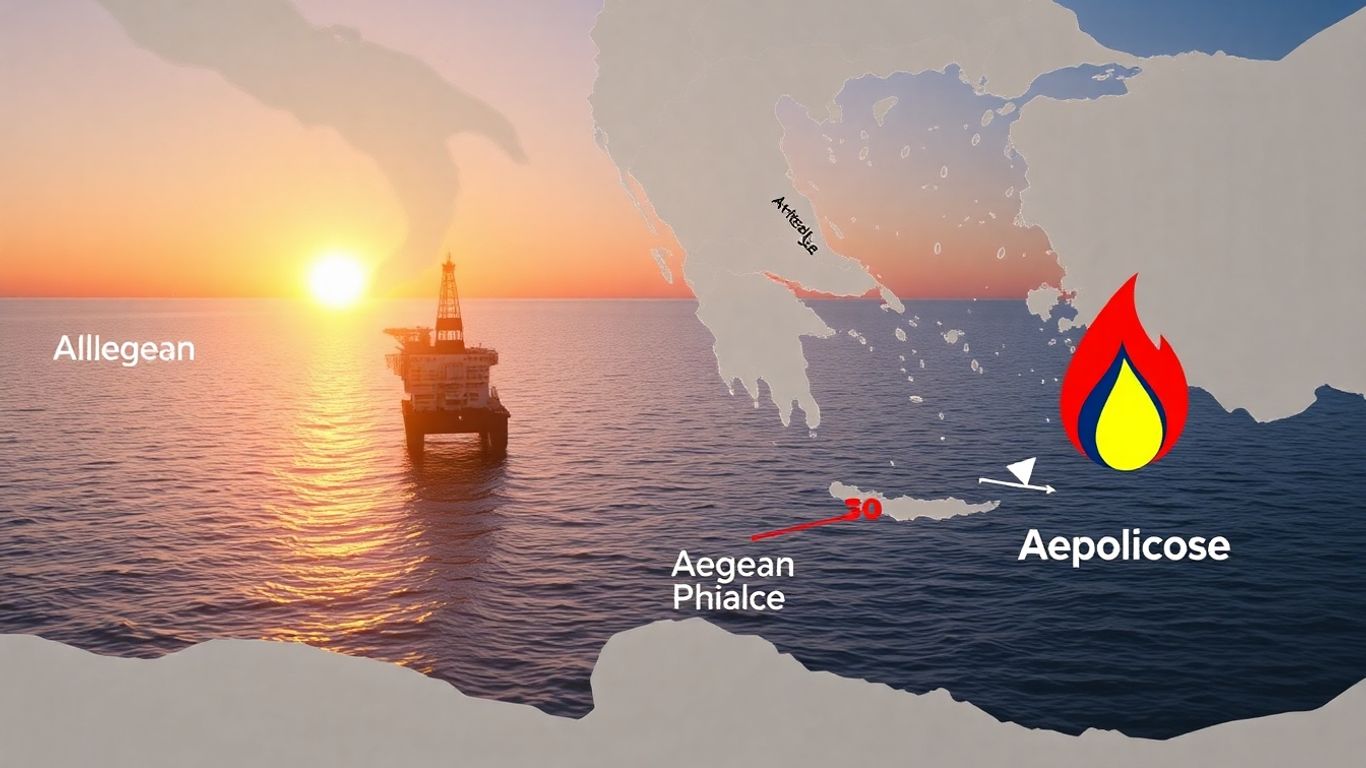Greece is making significant strides towards securing a crucial energy exploration contract with U.S. oil major Chevron and its Greek partner, Helleniq Energy. The agreement, focused on offshore gas exploration in blocks near Crete and the Peloponnese peninsula, is targeted for finalization by the end of 2025. This move is part of Greece’s broader strategy to enhance its energy independence and bolster its role as a key European energy transit route.
Key Takeaways
- Greece aims to finalize a gas exploration contract with Chevron and Helleniq Energy by the end of 2025.
- The exploration will cover four deep-sea blocks off the Peloponnese and Crete.
- Seismic research is planned for 2026, with potential test drilling not before 2030-2032.
- The deal aligns with the EU’s push to diversify energy sources away from Russia.
Accelerating Energy Exploration
Greece’s Energy Minister, Stavros Papastavrou, expressed the government’s intensive efforts to conclude the contract with Chevron and Helleniq Energy within the current year. The joint bid by Chevron and Helleniq for exploration rights in four deep-sea blocks was submitted earlier this year. This initiative is particularly significant as Greece currently has minimal oil production and relies heavily on gas imports for its energy needs.
Strategic Importance for Europe
The push for domestic gas exploration is a key component of Greece’s strategy to reduce its reliance on Russian energy supplies, a move accelerated by the geopolitical shifts following Russia’s invasion of Ukraine. By developing its own resources and strengthening its position as a transit hub, Greece aims to contribute to the European Union’s energy security goals.
Timeline and Next Steps
Following the finalization of the contract, it will require approval from a Greek court of auditors and the parliament. Once these approvals are secured, Chevron is expected to commence seismic research in 2026. The company will have up to five years to identify potential recoverable gas deposits. Any subsequent test drilling is anticipated to occur between 2030 and 2032.
Legal Framework and Regional Confidence
Chevron’s interest in exploring Greek waters is seen as a vote of confidence in Greece’s interpretation and application of international maritime law, particularly the UN Convention on the Law of the Sea (UNCLOS). This legal certainty is crucial in a region where maritime boundaries and resource rights are sometimes contested. Greece’s established maritime agreements with countries like Egypt and Italy, based on UNCLOS principles, provide a stable legal environment for foreign investment and underscore the region’s potential as a vital energy corridor for Europe.
Sources
- Greece seeks to finalise Chevron gas exploration contract this year, says minister, Reuters.
- Greece Wants to Seal Deal With Chevron for Offshore Energy Hunt, The National Herald.
- Chevron’s Eastern Med Gas Bids Reflect Confidence in Greece’s Interpretation of Maritime Law, Middle East Forum.
- Greece Nears Landmark Offshore Gas Deal with Chevron, Crude Oil Prices Today | OilPrice.com.






